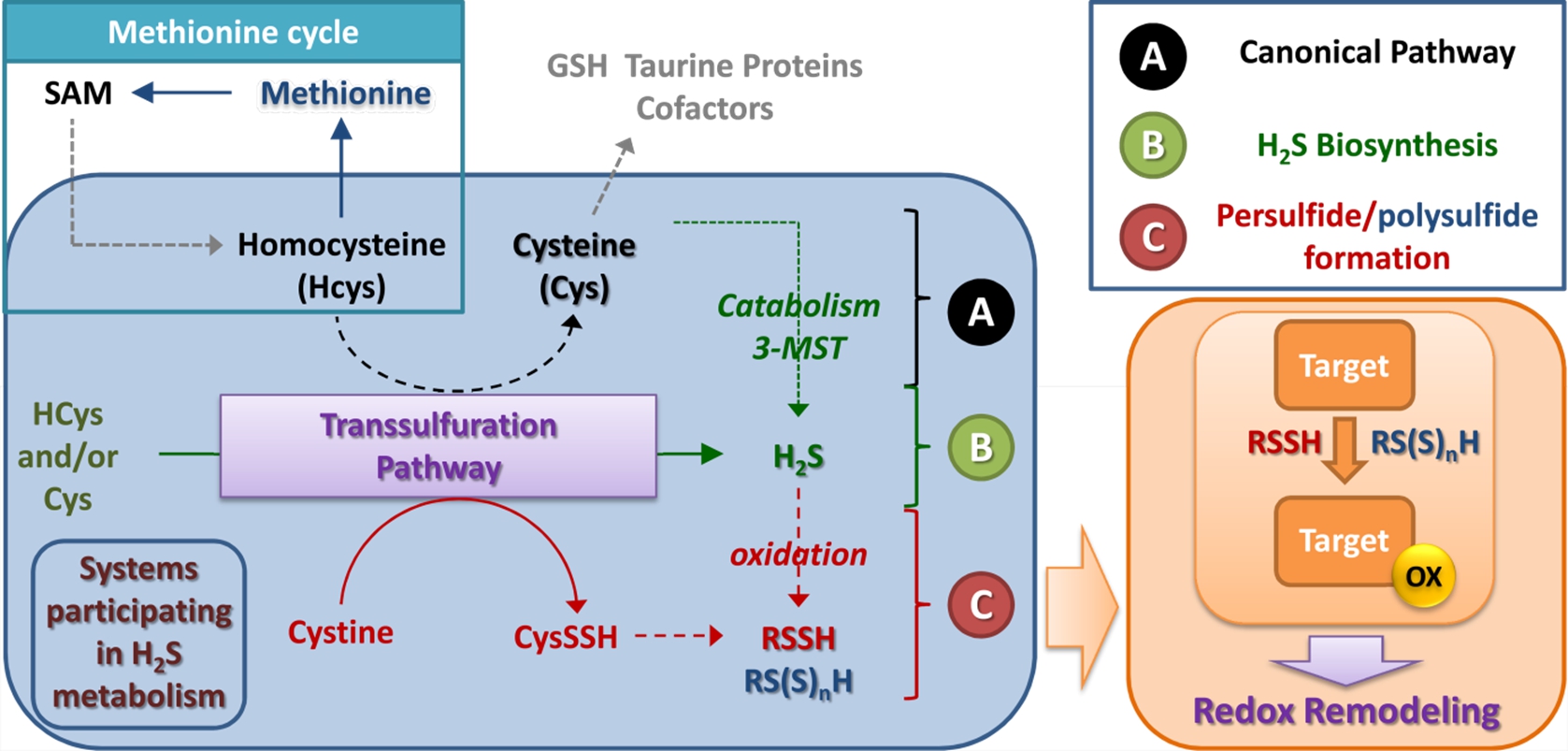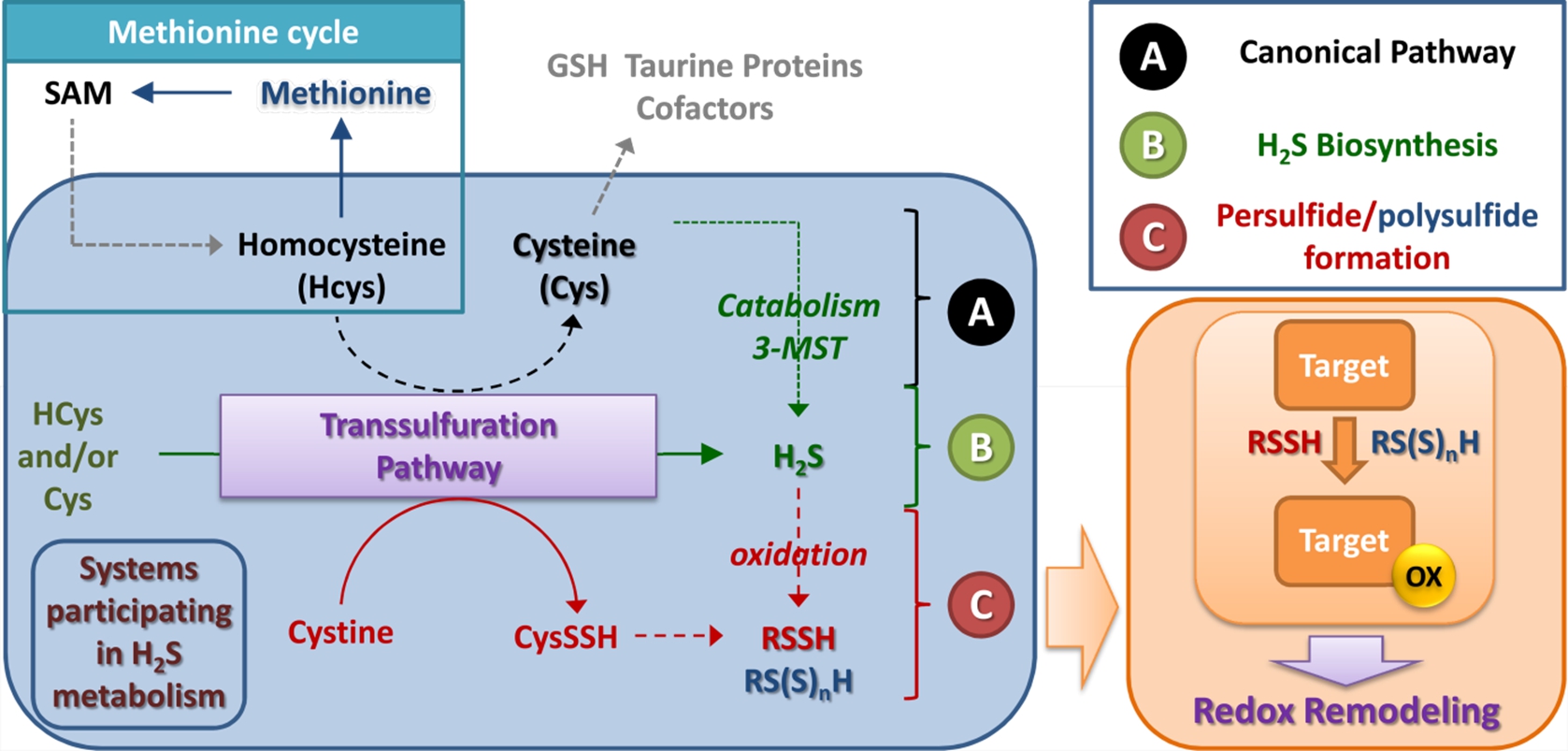Redox Homeostasis and Bio(in)organic Chemistry of Reactive Sulfur Species
Group Composition
Permanent Staff
E. Galardon, CR, HDR
S. Lajnef, IE
D. Over, MCU HC
F. Peyrot, MCU, HDR
M. Poinsot, IE
PhD Candidates & Postdocs
G.Force
In biology, redox-based signals regulate critical biological functions to suit the homeostatic metabolic balance and participate in both our health and the initiation and/or progression of many diseases, The redox effector toolkit includes the redox transition metals, reactive oxygen species (ROS) derived from dioxygen, reactive nitrogen species (RNS) derived from nitric oxide, and reactive sulfur species (RSS) derived from hydrogen sulfide (H2S).
In this general context, our team uses complementary skills in biochemistry, inorganic and organic syntheses and physical chemistry, as well as various spectroscopies, to tackle three main research axes:
We are interested in the synthesis and reactivity studies of biologically relevant sulfur-derivatives, with a strong focus on organic persulfides or inorganic complexes with disulfanido ligands.
We use reliable (bio)chemical tools to decipher their mechanisms of action on relevant model compounds and biological targets, and we apply an integrated approach to decode their biosynthesis as well as their implication under normal and inflammatory conditions.
We design and synthesize new probes for redox species or H2S, and develop their application both in vitro and in vivo.
Full list of publications available here
Redox Homeostasis and Bio(in)organic Chemistry of Reactive Sulfur Species
PhD Candidates
A. Stojanovic
Research
In biology, redox-based signals regulate critical biological functions to suit the homeostatic metabolic balance and participate in both our health and the initiation and/or progression of many diseases, The redox effector toolkit includes the redox transition metals, reactive oxygen species (ROS) derived from dioxygen, reactive nitrogen species (RNS) derived from nitric oxide, and reactive sulfur species (RSS) derived from hydrogen sulfide (H2S).
In this general context, our team uses complementary skills in biochemistry, inorganic and organic syntheses and physical chemistry, as well as various spectroscopies, to tackle three main research axes:




